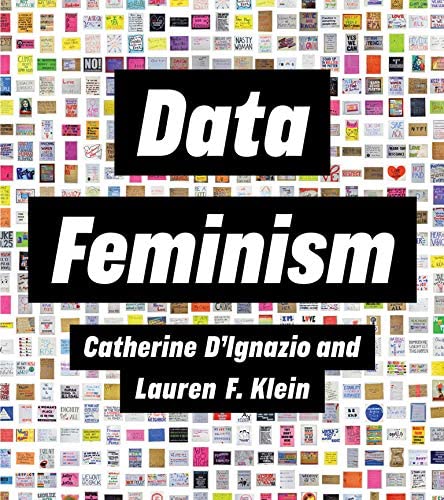
Data Feminism: A Well-Written Critique of Our Current Power Structures
A review of the book by Catherine D'Ignazio and Lauren F. Klein.
Brief Description
Data Feminism examines how data science can be shaped by feminist values to promote fairness, inclusivity, and social justice, highlighting the ways in which data can both reflect and reinforce existing power structures. Not only does it address the many issues within our patriarchal society, but it highlights other forms of oppression and intersectionality.
What I Liked
This book was very engaging and accessible to a wide audience while still maintaining its integrity. It also includes plentiful evidence and real world examples. The authors effectively identify and discuss power structures and biases that exist in the data science world, as well as how they harm many different communities of people. They also place emphasis that they have limited scope as cis, white women, and while they attempt to cover many aspects of oppression, others may have many experiences that are not fully addressed in this book. Data Feminism encourages discussion as well as critical reflection to observe what changes can be made. Social justice is not often connected to data science and I enjoyed learning about the myriad of issues that are very prevalent in our economic, academic, and bureaucratic institutions.
What I Didn’t Like
Although the book offers many good insights on the benefits to applying feminism to data science, it doesn’t provide much practical implementation. While critiquing systems and recognizing oppression is essential, it’s more productive when it is accompanied by actions that readers can perform. Data Feminism also would have benefitted from discussing more aspects of intersectionality. It defined the concept early on and introduced the authors’ intentions of addressing many forms of discrimination such as homophobia, classism, transphobia, and xenophobia, the book mostly covered feminism and how oppression can affect women of color differently. It feels like the statements in the introduction were not met fully.
Overall Review
Reading Data Feminism was a very eye-opening and beneficial experience. I thoroughly enjoyed the time I spent and I am glad I had the opportunity. It was difficult to even find many critiques because this book was a well rounded piece as it currently stands. I highly recommend this book, especially to individuals involved in the data science world.
Rating
Overall, I give it a 4.5 out of 5 stars.